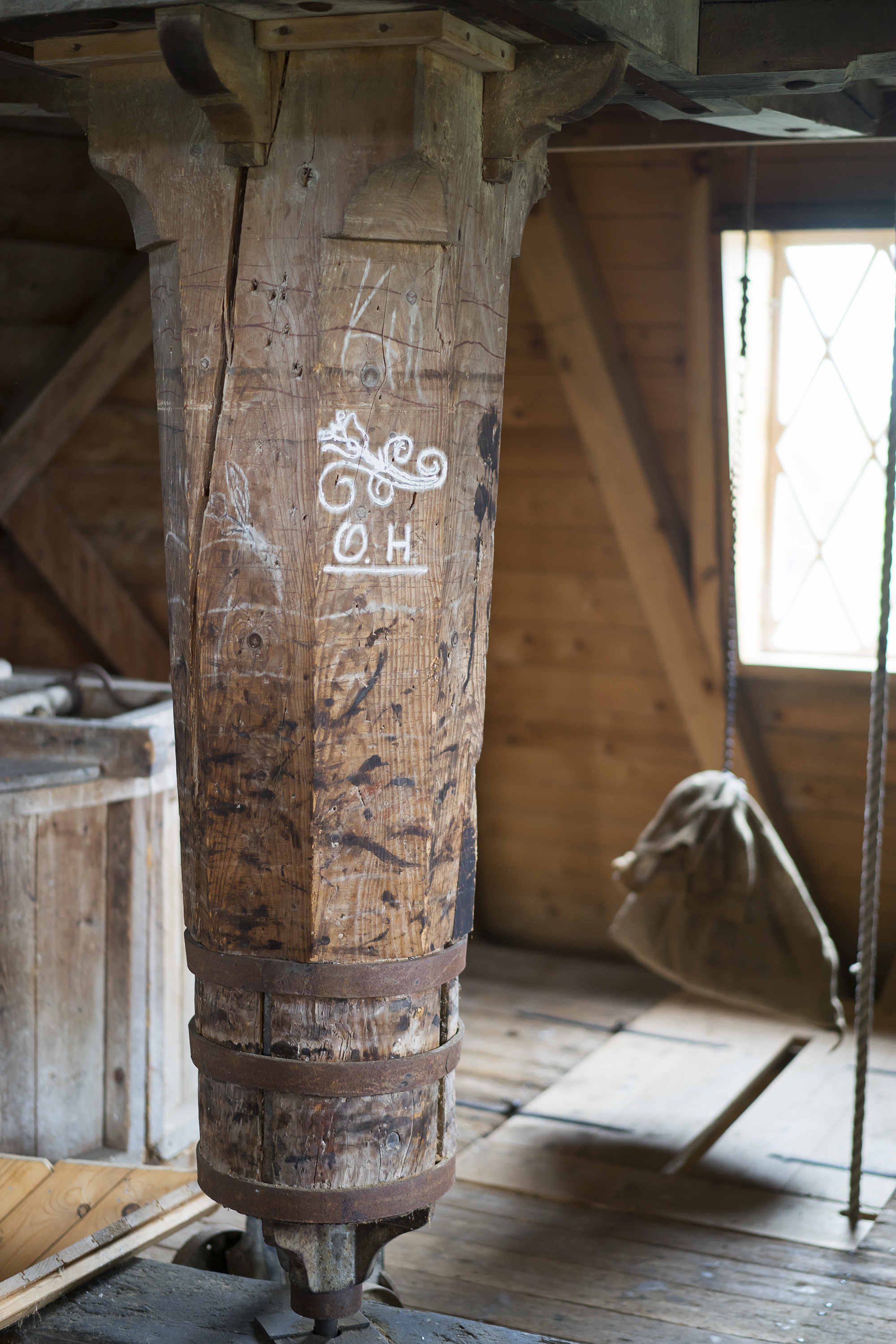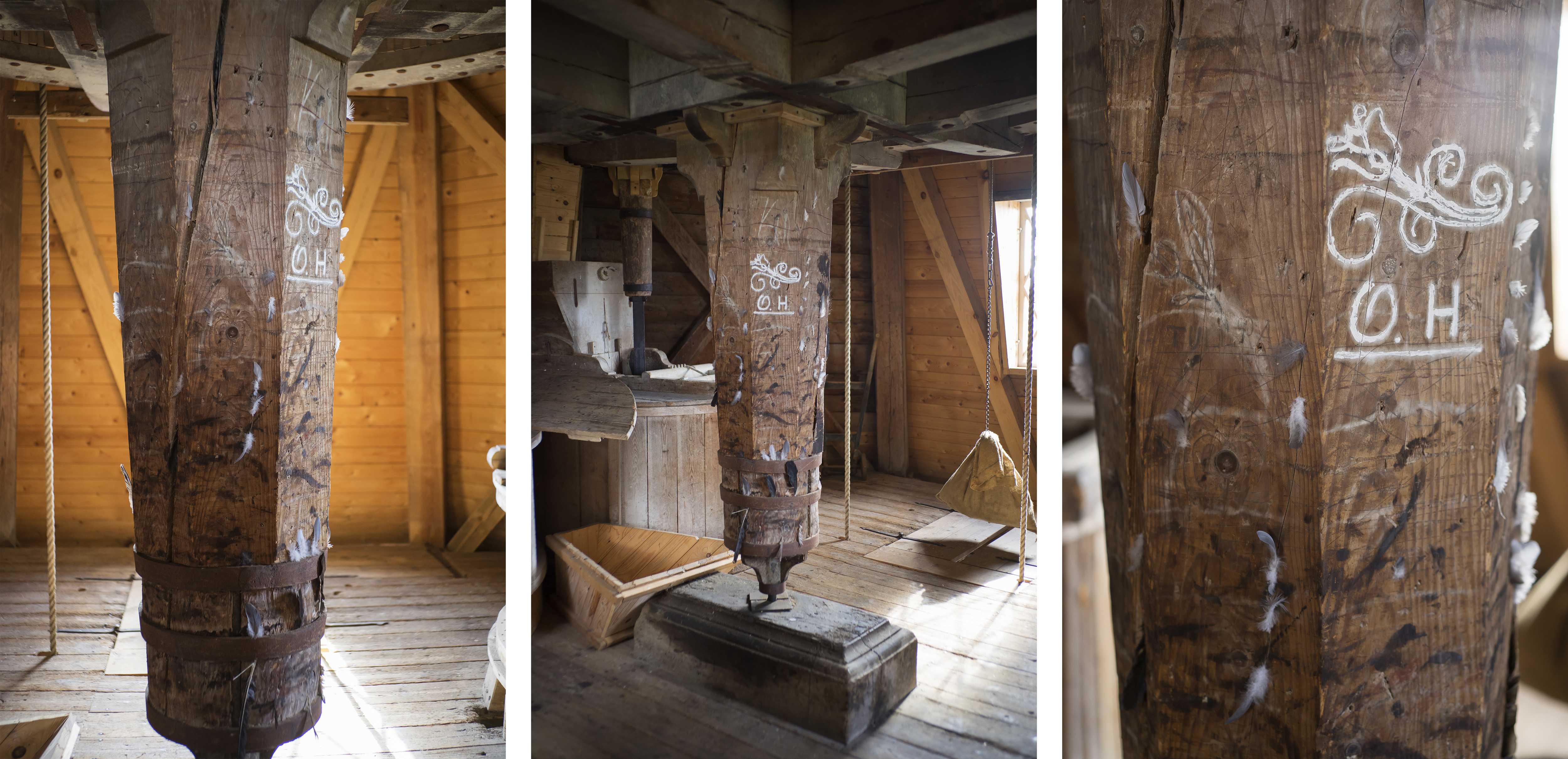ARNA's prompt:
How can you use the historical legacy of Hammarlunda Mölla
in conjunction with contemporary art to contribute to culture, the forth dimension of sustainability declared by UNESCO in 2010?

Insignia by Ola Håkansson
Hammarlunda Mölla's Miller from 1897-1912
declared culture “The Fourth Pillar of Sustainability.” This was followed in
2012 by the Rio+20 UN conference, which declared:
“We acknowledge the diversity of the world and recognize that all cultures and civilisations contribute to the enrichment of humankind and the protection of the Earth’s life support system. We emphasize the importance of culture for sustainable development. We call for a holistic approach to sustainable development which will guide humanity to live in harmony with nature.”
By including culture in sustainability one achieves a more complete development model which – it is argued – better embraces the complexity of societies and highlights the importance of culture as a driver of societal change and development.”
Sound System and Soundscape Construction and Installation

One stereo, six speakers - two speakers spliced into the left channel, two spliced into the right.
One USB hub plugged into
the stereo's port is used as a power source for the additional speakers.
the stereo's port is used as a power source for the additional speakers.
Speaker splices are completed with solder and heat shrink and are inside the stereo.
Additional lengthening of speaker cords
was completed in the windmill during installation.
was completed in the windmill during installation.
The soundscape was played using the stereo's CD drive.
Ola once lived and worked
in Hammarlunda Mölla.
He was an avid fiddler,
"... and had a chubby jackdaw named Clas that lived in the mill with him.”
in Hammarlunda Mölla.
He was an avid fiddler,
"... and had a chubby jackdaw named Clas that lived in the mill with him.”
- Göhran Hansson.
By elaborating on this backstory I have created two works that bring the spirits of Ola and Clas back to life:
Above - a site specific, permanent audio installation that reflects the oral and written history of Ola and Claus with music and spoken word performances.
Below - A site specific, permanent installation of locally sourced jackdaw feathers installed in the windmill’s central turbine rotor, upon which Ola’s insignia can also be found.
Above - a site specific, permanent audio installation that reflects the oral and written history of Ola and Claus with music and spoken word performances.
Below - A site specific, permanent installation of locally sourced jackdaw feathers installed in the windmill’s central turbine rotor, upon which Ola’s insignia can also be found.
 Jackdaw Feathers (in ascending order): Molting - Adolescence - Adulthood - Death
Jackdaw Feathers (in ascending order): Molting - Adolescence - Adulthood - Death
The Show/ Opening Day of Hammarlundadagen
The audio composition features sounds of mechanisms moving and ambient noise recorded in the mill,
five violin songs played by Mats Edén, voice recordings by local clock and motorcycle repair man Lars Persson, and found and field recordings of various jackdaws.
The composition implies the passing of time by featuring caws and chirps that tonally reflect four stages of a bird's lifetime.
Five violin songs that incrementally increase in complexity, suggesting that Ola became a more skilled violinist with practice.
The blending of jackdaw chirps and violin into one track that eventually creates a duet between Ola and Clas.
Audio cues:
"It's snowing outside,"
"It's springtime now,"
"Clas, you've come back!"
etc.
The soundtrack is turned on when there are visitors to the mill, and is set to loop indefinitely.
Along with the installations
in Hammarlund Mölla, ARNA arranged an exhibition at Kalk Gallery in Hammarlunda to showcase its residents' process work.
five violin songs played by Mats Edén, voice recordings by local clock and motorcycle repair man Lars Persson, and found and field recordings of various jackdaws.
The composition implies the passing of time by featuring caws and chirps that tonally reflect four stages of a bird's lifetime.
Five violin songs that incrementally increase in complexity, suggesting that Ola became a more skilled violinist with practice.
The blending of jackdaw chirps and violin into one track that eventually creates a duet between Ola and Clas.
Audio cues:
"It's snowing outside,"
"It's springtime now,"
"Clas, you've come back!"
etc.
The soundtrack is turned on when there are visitors to the mill, and is set to loop indefinitely.
Along with the installations
in Hammarlund Mölla, ARNA arranged an exhibition at Kalk Gallery in Hammarlunda to showcase its residents' process work.
Shared exhibition with Anta Germane
Gallery of Creative Processes
![]()
An exit presentation summarizing my work, creative process, and the residency in general.
A short film of my experiences during the residency.
September 2016
Gallery of Creative Processes
An exit presentation summarizing my work, creative process, and the residency in general.
A short film of my experiences during the residency.
September 2016